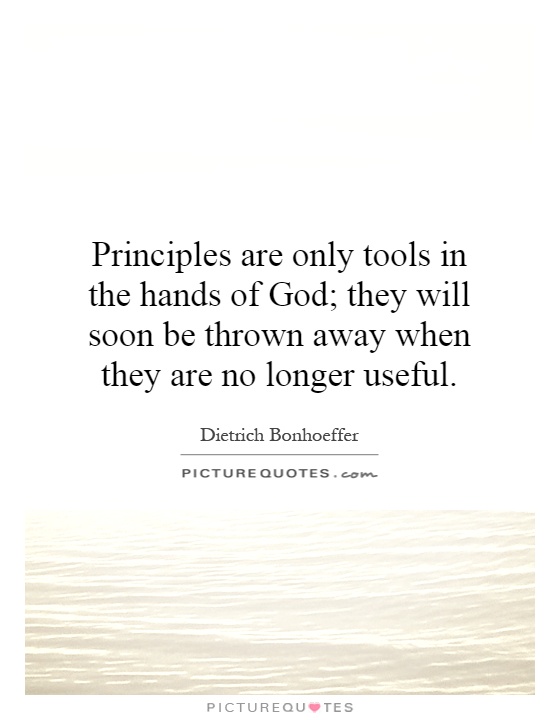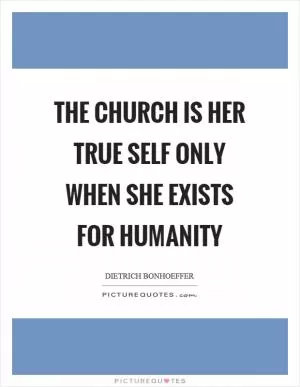Principles are only tools in the hands of God; they will soon be thrown away when they are no longer useful

Principles are only tools in the hands of God; they will soon be thrown away when they are no longer useful
Dietrich Bonhoeffer, a German theologian and pastor, is known for his strong faith and unwavering commitment to standing up against the injustices of the Nazi regime during World War II. He believed in the power of principles as tools in the hands of God, but also understood that they must be flexible and adaptable to changing circumstances.Bonhoeffer's belief in the importance of principles as tools in the hands of God can be seen in his writings and actions. He believed that principles, such as love, justice, and compassion, were essential for guiding individuals in their moral decision-making and actions. These principles were not meant to be rigid and unchanging, but rather to be used as tools to help individuals navigate the complexities of life and make decisions that align with God's will.
However, Bonhoeffer also recognized that principles could become outdated or no longer useful in certain situations. In his book "Ethics," he writes, "Principles are only tools in the hands of God; they will soon be thrown away when they are no longer useful." This statement reflects Bonhoeffer's understanding that principles must be constantly reevaluated and adapted to changing circumstances in order to remain relevant and effective.
During his time in Nazi Germany, Bonhoeffer faced numerous moral dilemmas and challenges that forced him to reconsider his principles and beliefs. He ultimately made the difficult decision to participate in a plot to assassinate Adolf Hitler, a decision that went against his pacifist beliefs but was motivated by his commitment to stopping the atrocities committed by the Nazi regime.
Bonhoeffer's willingness to set aside his principles in order to take action against evil demonstrates his understanding that principles are not absolute and must be flexible in order to serve God's greater purpose. He believed that God's will could sometimes require individuals to make difficult choices that may go against their principles, but ultimately serve a higher moral good.












 Friendship Quotes
Friendship Quotes Love Quotes
Love Quotes Life Quotes
Life Quotes Funny Quotes
Funny Quotes Motivational Quotes
Motivational Quotes Inspirational Quotes
Inspirational Quotes